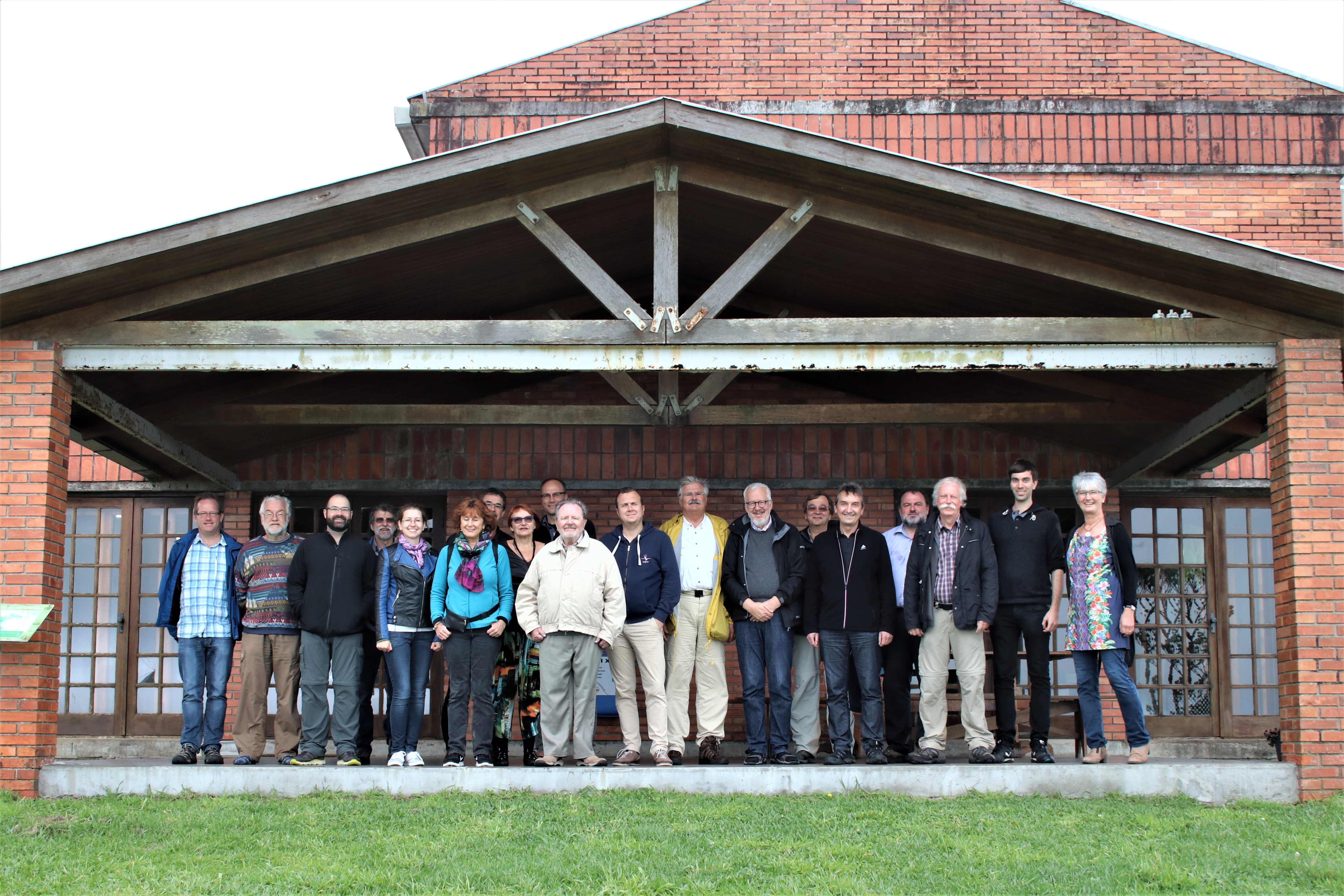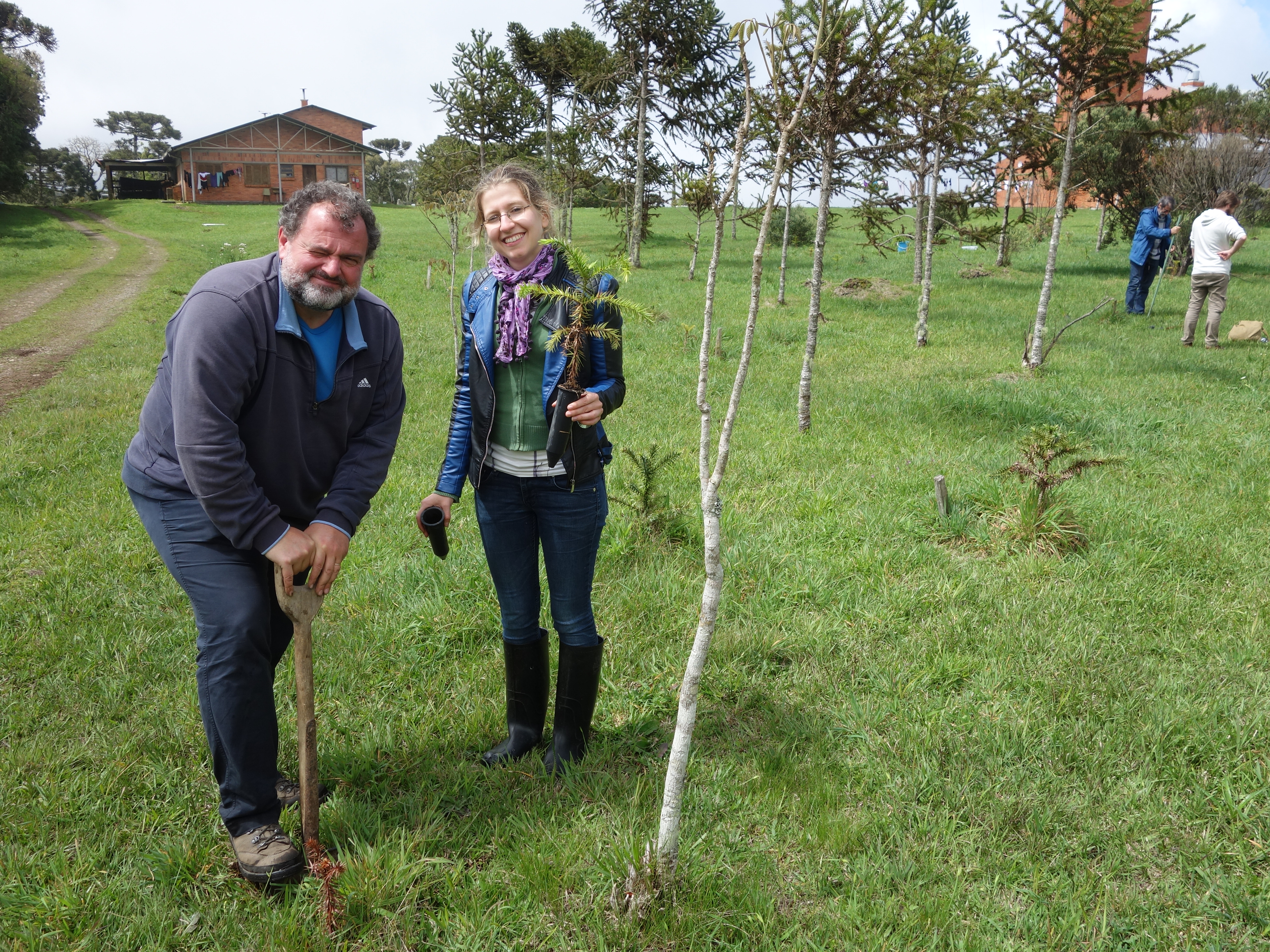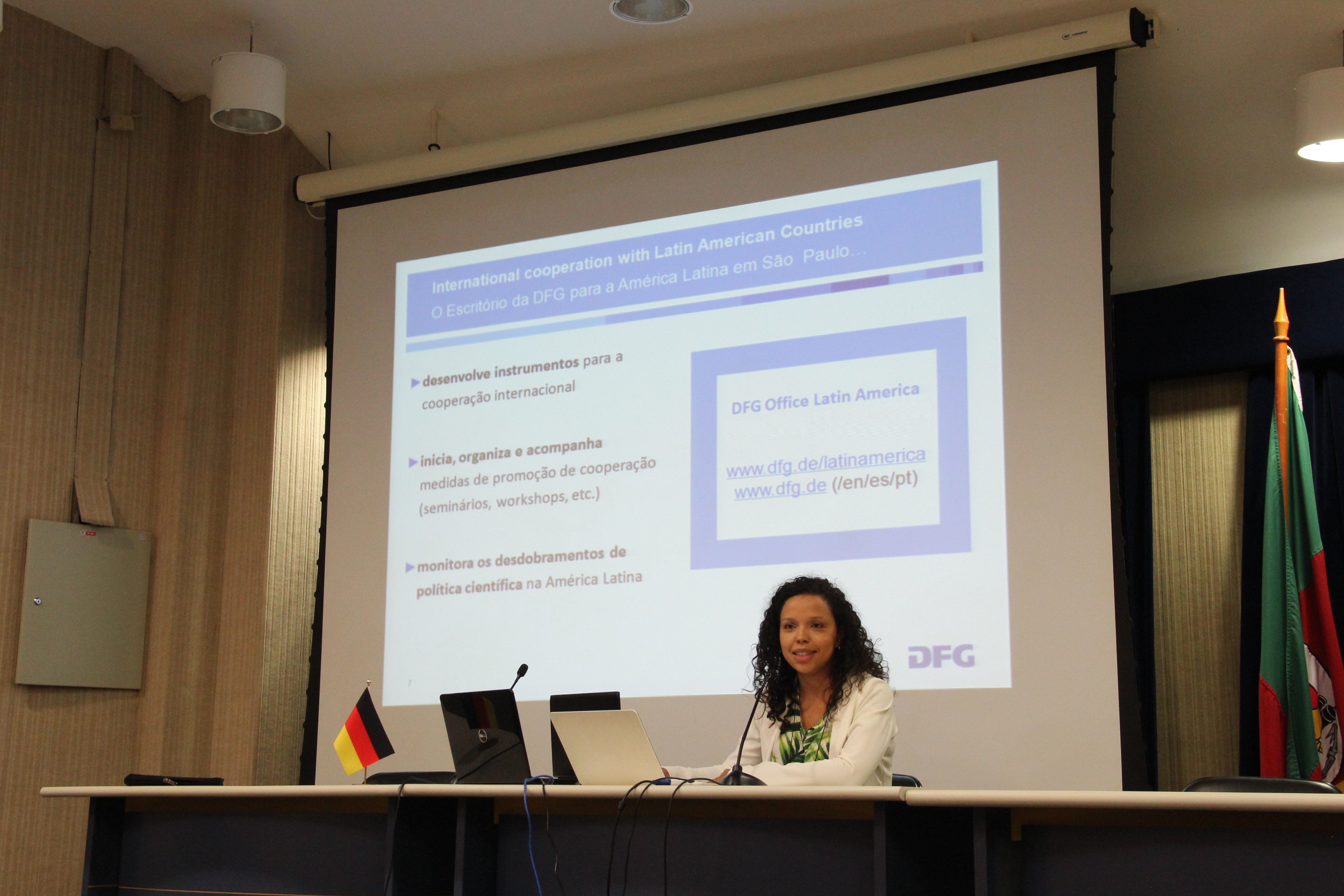8th German-Brazilian Sustainability Symposium in Porto Alegre
DFG provides information about research cooperation and funding opportunities
(24.10.17) Shaping sustainable societies is one of the greatest challenges we face today, and it can only be achieved through engagement and international cooperation. In 2015, the 163 member states of the UNO signed Agenda 2030, which contains 17 goals for the implementation of sustainable development by the year 2030. Despite this common foundation, the social, cultural, economic and geographical features of each individual country present a range of challenges that need to be met along the way.

The German delegation visits the “Pró-Mata” nature conservation area
© Rainer Radtke
The “German-Brazilian Symposium for Sustainable Development”, which takes place every two years, serves as a forum for exchange about similarities and differences in relation to sustainable development in Brazil and Germany. It is organised by researchers from both countries. The location for this year's event was the Pontifical Catholic University in the Federal State of Rio Grande Do Sul (PUCRS), where around 250 interested people gathered in the state capital of Porto Alegre.
Researchers from a wide range of areas gave lectures and poster presentations outlining their work on aspects of the interrelationship between humans and natural resources, as well as the associated effects on society and science. Topics covered included the themes of energy, water, soil, climate, biodiversity, agriculture, forest sciences, politics, the economy, resource management and cities of the future.

Prof. Potthast, University of Tübingen and Ims Oelkrug plant an Araucaria in Pró-Mata, as did the other German delegation members © Rainer Radtke
© Rainer Radtke
Organising the symposium, which takes place in Brazil and Germany alternately, is the task of the respective host university with the support of the Baden Württemberg Brazil Centre at the University of Tübingen, and also, since 2011, Baden-Württemberg International (bw-i). This year’s host university, PUCRS, and the University of Tübingen have been collaborating on joint projects for many years; this was formalised with a cooperation agreement in 1983. One of the products of this cooperation is the research station in the Pró-Mata reservation – a 3,100-hectare nature conservation area in the municipality of São Francisco de Paula (RS). The project was initiated by the German university and developed together with the PUCRS. The Research Centre was formally opened in 1996; its purpose is to contribute to the recording and protection of biodiversity in the southern regions of the Atlantic rainforest in Brazil, in particular in the Araucaria forests – regions of great biological significance and complex surface structure.
During the symposium, both institutions signed the extension of the cooperation agreement by five years; this is the seventh such extension. The Pró-Mata site is also used for classes, research and other activities of the participating universities. The University of Tübingen has been holding its “Geo-ecological field training” classes there every year since 2002.
Following on from the congress at the PUCRS, a 20-member German-Brazilian delegation visited the nature conservation area and was able to form a clear picture of the research opportunities there.
In view of the established German-Brazilian projects in the area of sustainability and the presence of researchers from both countries at the event, the Director of the DFG Latin America office, Dr. Kathrin Winkler, was invited to give a lecture on the topic block “Bilateral Programmes and Cooperation”. She spoke about the current status of scientific cooperation between Brazil and Germany and ongoing joint initiatives with Brazilian partner organisations. On the Brazilian side, Concepta Pimentel, Director of the Department of International Relations at Capes, outlined the funding agency's strategies for strengthening international cooperation. (Capes has been a partner organisation of the DFG since 1995.) She also introduced her audience to Capes’ new internationalisation programme for Brazilian universities. Further information on this topic block is available here:

Carolina Santa Rosa introduced the DFG's funding programmes as part of the Research in Germany Initiative
© DFG
A “Research in Germany” lunch session was also organised during the symposium, at which study and research options and associated funding possibilities in Germany were presented. Together with representatives of the German Academic Exchange Service (DAAD) and the Alexander von Humboldt Foundation (AvH), Carolina Santa Rosa of the DFG Office Latin America in São Paulo provided information about the DFG's funding programmes, with a particular focus on options available to early career researchers. Around 80 people were present at the event, including students, doctoral researchers and postdocs.